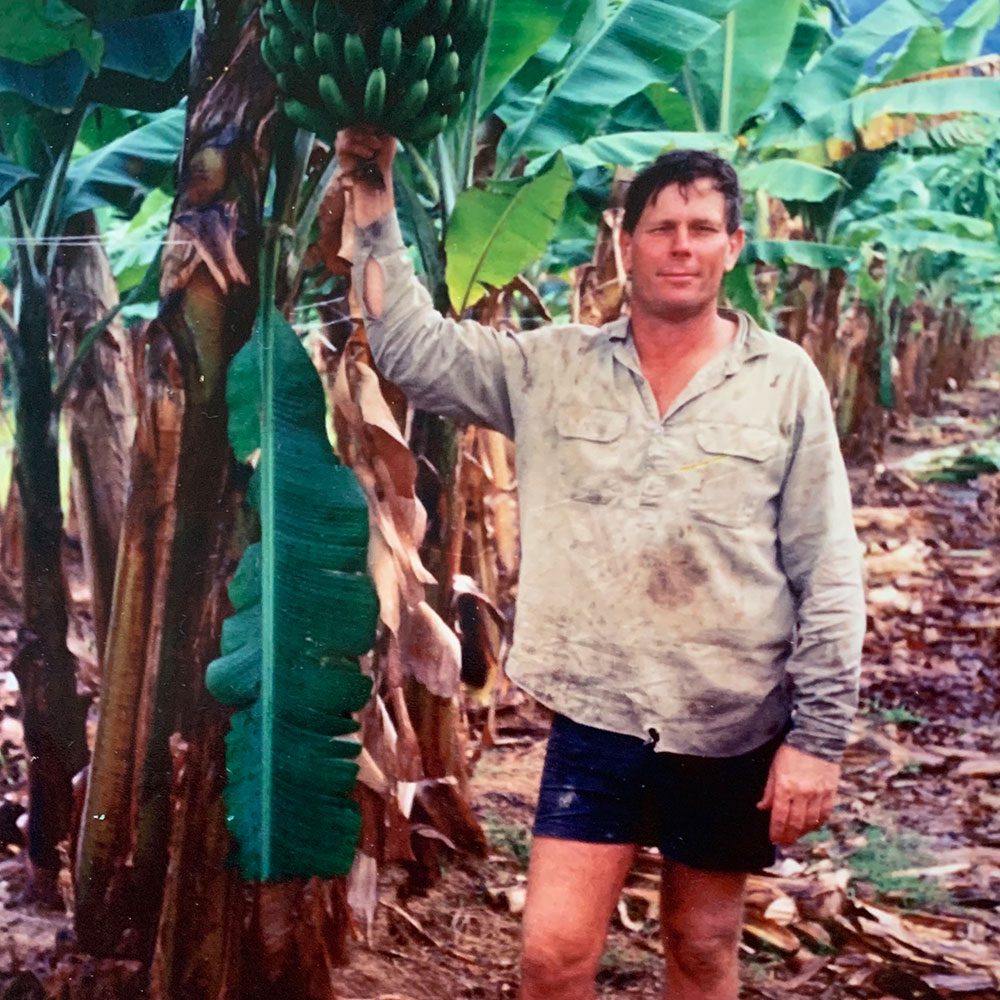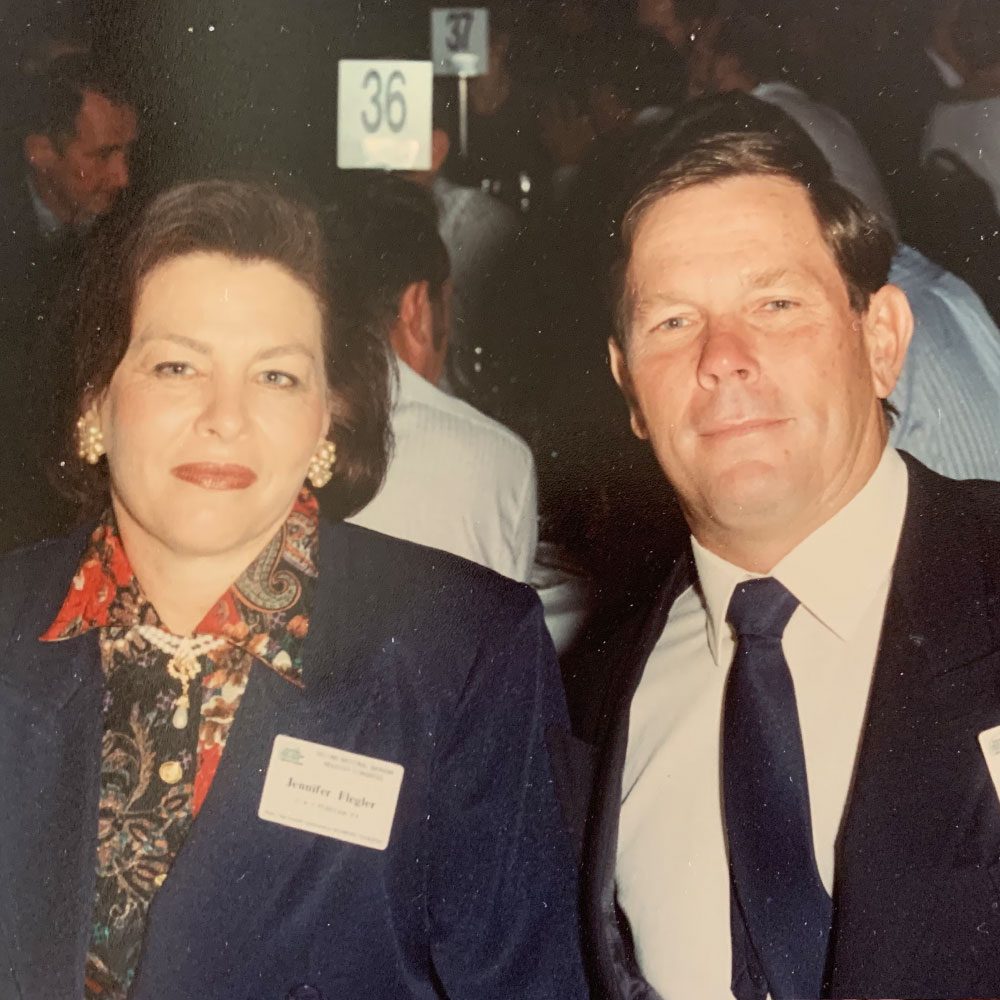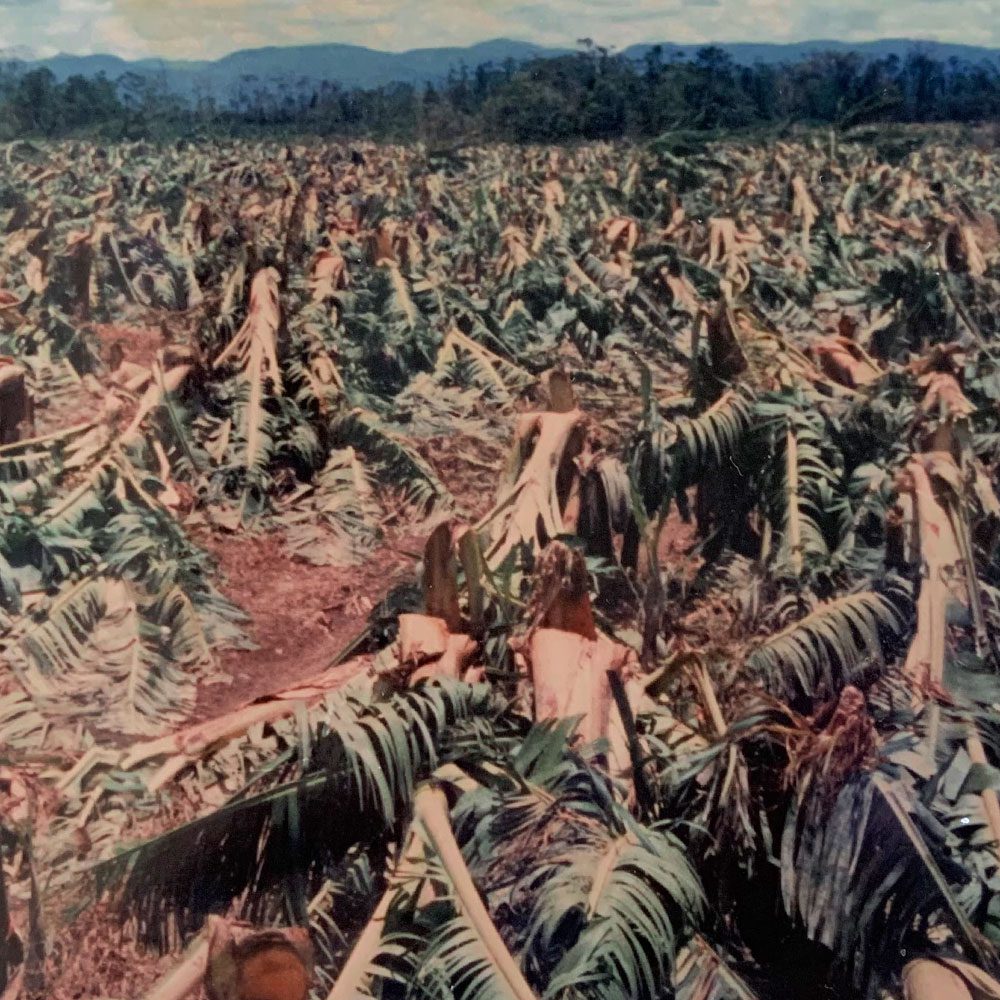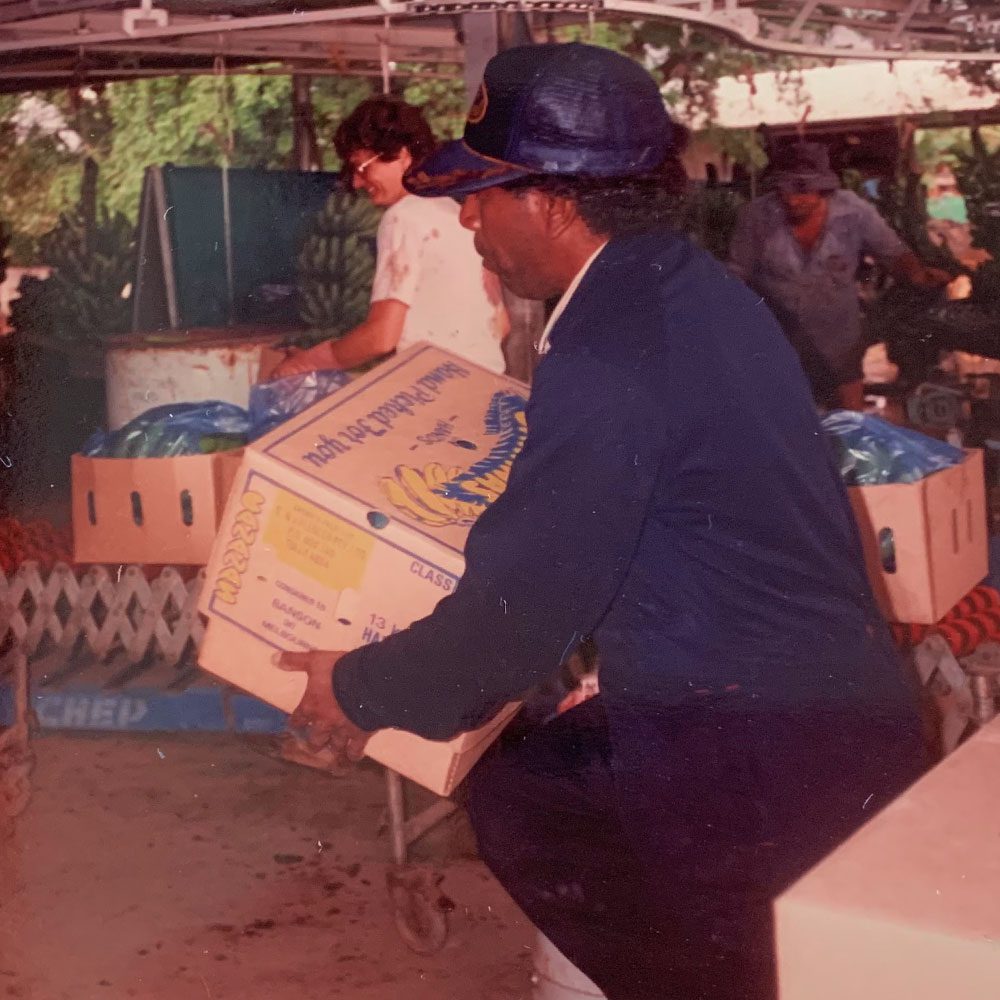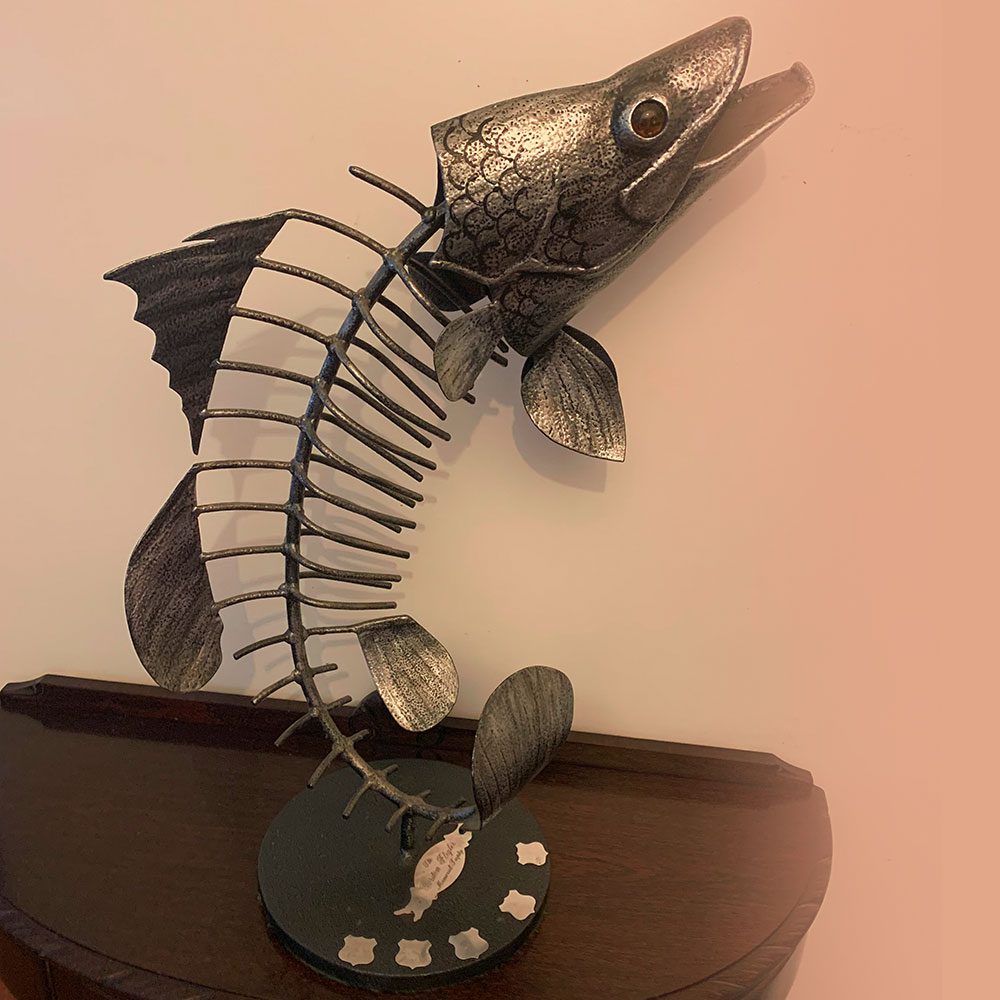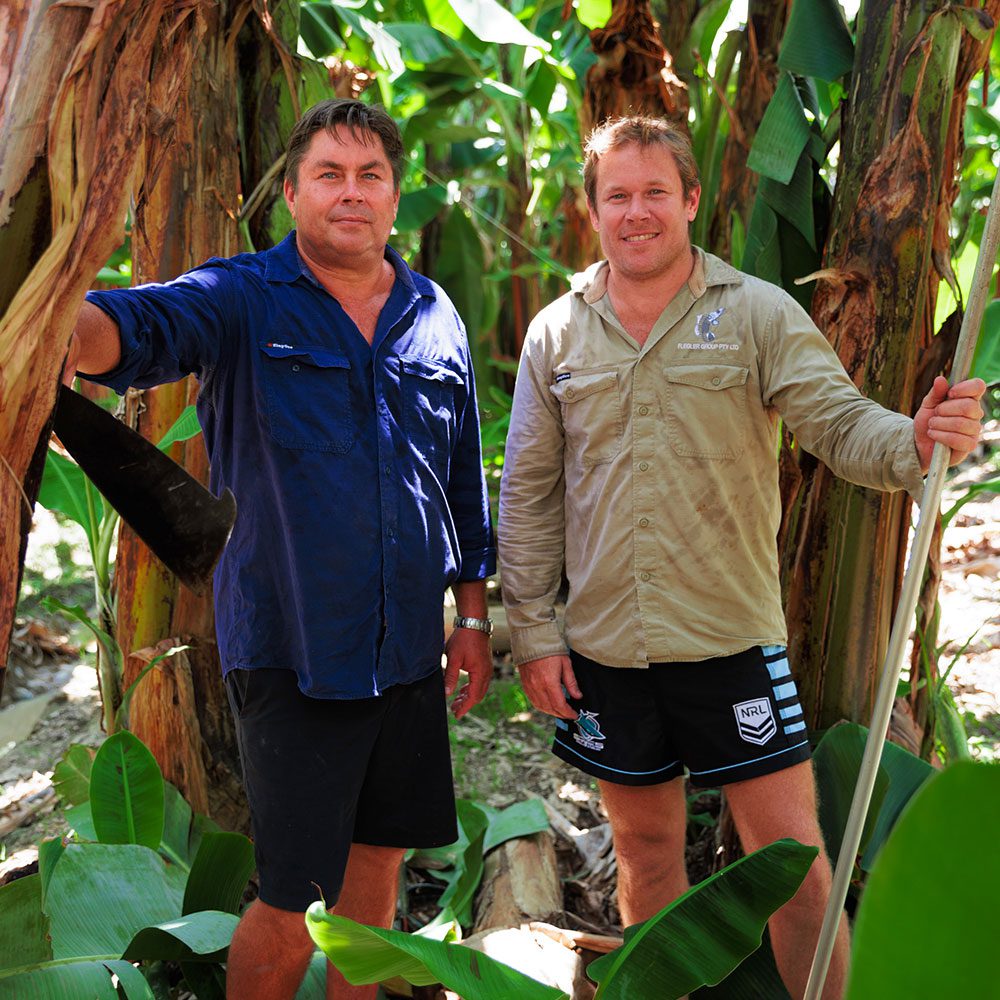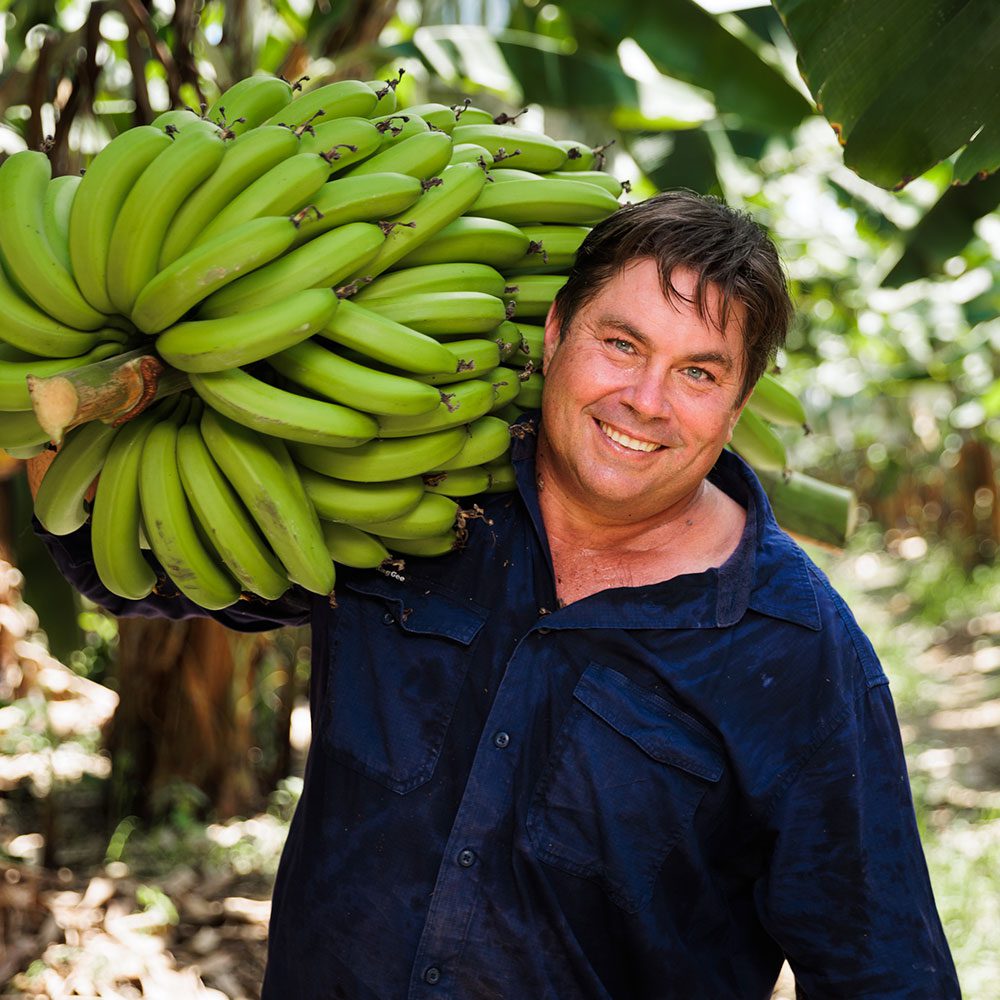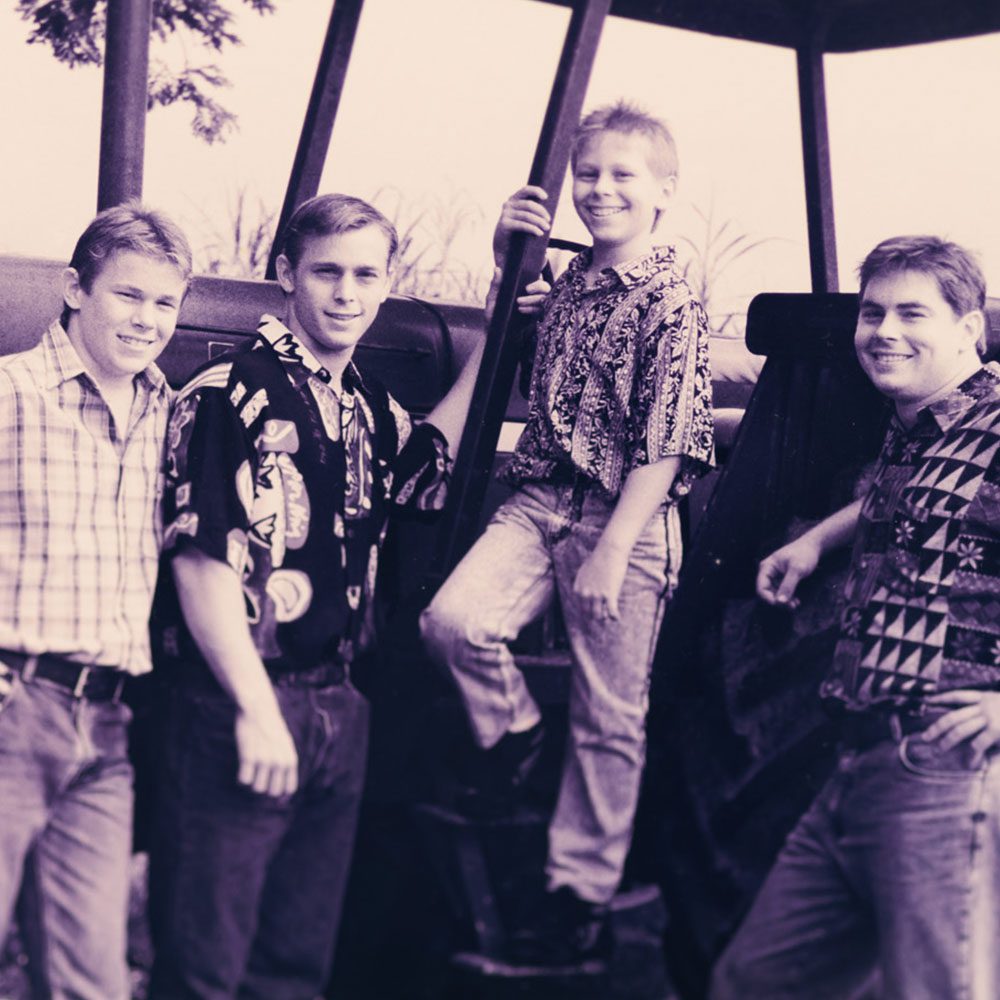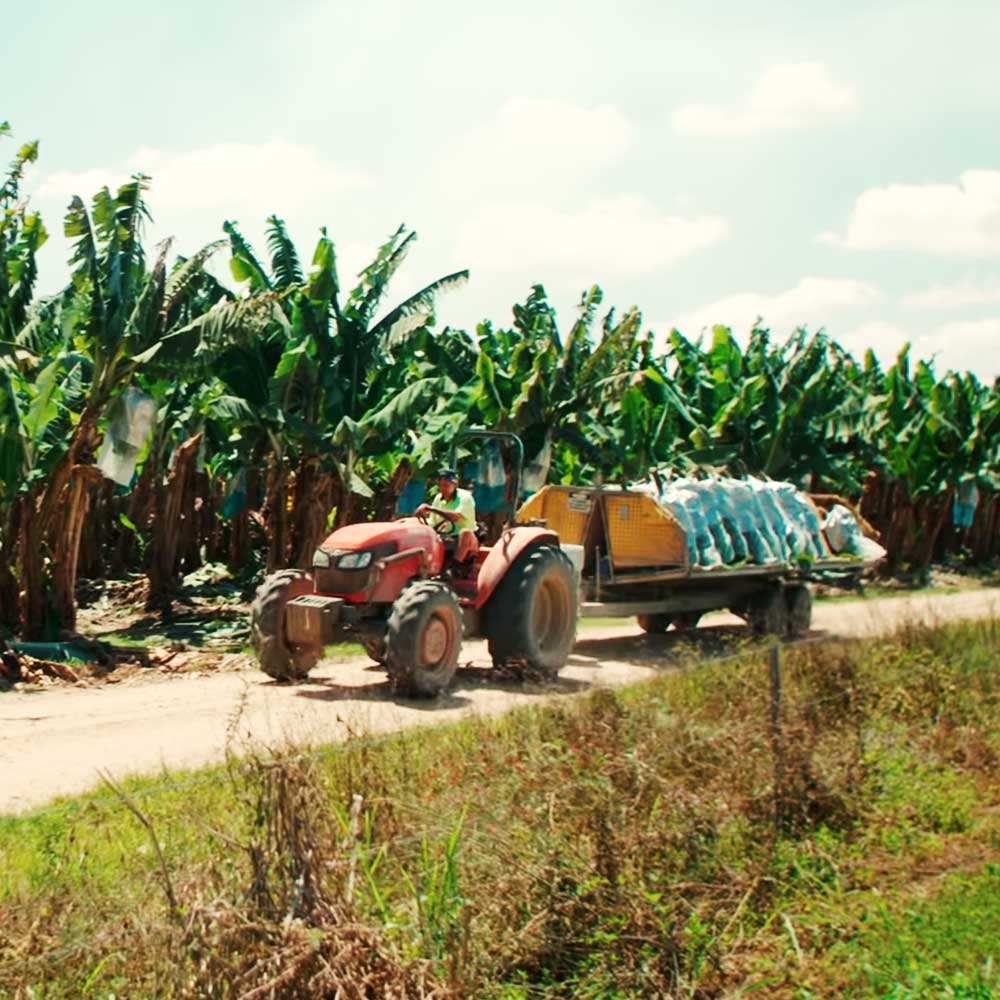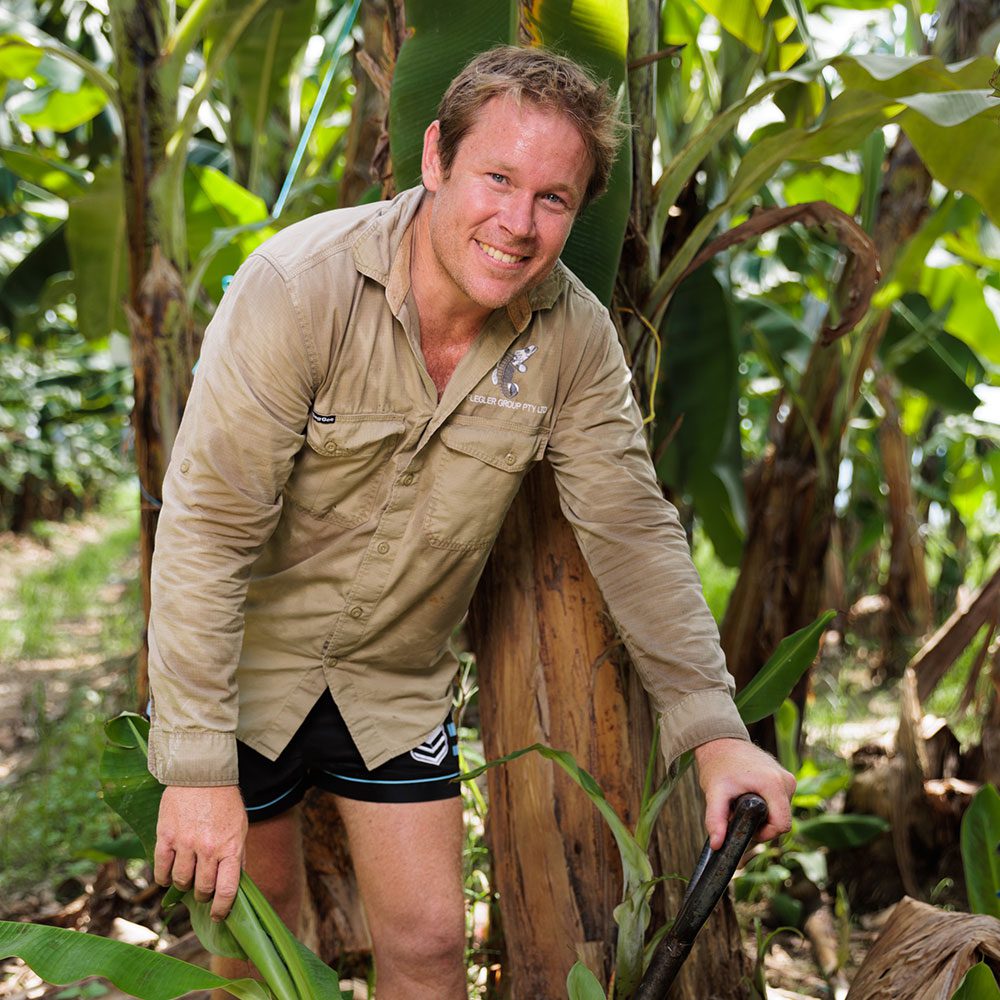2001
Black Sigatoka is found in the banana paddocks of the Tully region causing industry wide panic. This leaf-related disease is an aggressive black fungus that eats the leaves of a banana tree.
Consequently, the leaves begin to deteriorate to the point where the banana tree dies. As with previous leaf-related diseases such as Yellow Sikatoka, infected leaves can be successfully removed in time to prevent further spread.
However, Black Sigatoka accelerates too quickly to prevent the spores being carried in the air to other trees. This disease would have devastated the banana industry had the growers not destroyed entire paddocks to eliminate spread.
From this, Flegler Group moved to using mini sprinklers instead of taller, aerial irrigation systems that disturb the leaf causing Black Sigatoka to spread easier. Cameron Flegler was a victim of having to destroy entire paddocks at his Brick Creek farm and had to cease operations there.
Yet, a hopeful prospect emerges as mini-sprinklers conserve water compared to previous irrigation techniques saving natural resources and helping the bottom line which still benefits growers today.
The Flegler Group logo concept is the bone structure of a barramundi which was designed from a trophy that Gordon Flegler won from fishing. Himself and his friends had a competition every year amongst themselves that whoever caught the biggest barramundi for the year won the trophy.
After Gordon’s battle with cancer his friends insisted the family keep the trophy as an to honour him and his love of fishing as Gordon was the last winner before his passing.


